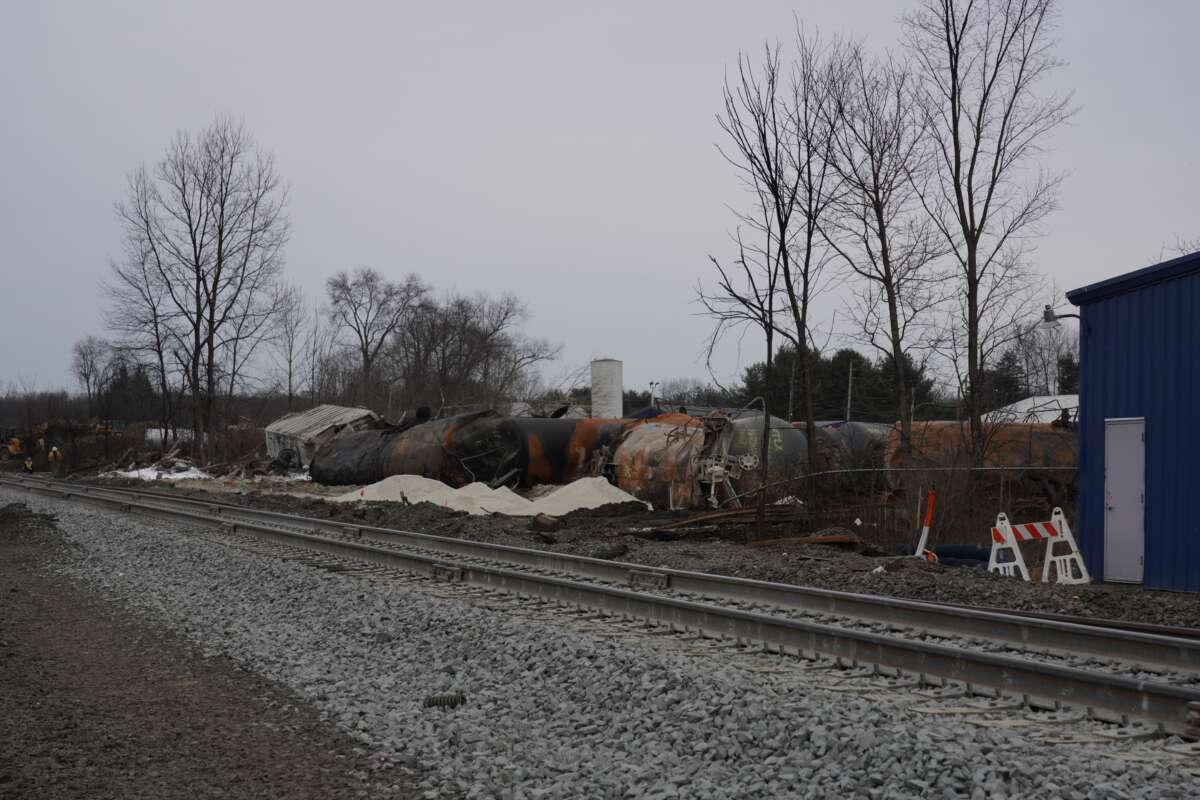The toxic clouds that billowed up from a derailed freight train in Ohio earlier this month are a chilling metaphor for the toxic greed that has infected so many of our big corporations.
After having to evacuate, residents of the town near the derailment are cautiously going back home, but they still don’t know the full extent of the damage to the area’s environment and public health.
The Norfolk Southern train was carrying dangerous chemicals, including vinyl chloride, a highly flammable carcinogen that is more harmful than even ammonia and natural gas, according to federal regulations.
Following the derailment, locals have reported evidence of the sudden death of fish and wildlife, in addition to people having difficulty breathing, numb limbs, and rashes, among other possible physical symptoms from the chemical exposure.
Unions representing rail workers had warned of the possibility of just such a catastrophe.
In contract negotiations last year, they denounced a business model known as “precision scheduled railroading,” which aims to boost profits by running bigger and faster trains with smaller crews. The practice has even earned a nickname among rail workers: “positive shareholder reaction.” Combined with a lack of guaranteed sick pay, this created dangerous conditions for overworked rail employees.
Where have all the profits gone?
Over the last three years, CEOs at five of the largest railroad conglomerates raked in a staggering $200 million in compensation. Norfolk Southern and the six other largest U.S. freight railroad companies also spent $191 billion on stock buybacks and shareholder dividends between 2011 and 2021, making their wealthy executives and investors even richer.
And while railroad execs lined their own pockets, their lobbyists advocated against stricter safety rules. In 2017, after rail industry donors gave Republicans federal regulators killed provisions requiring rail cars carrying hazardous materials to have more sophisticated, faster braking systems.
This profit-driven approach is clearly putting workers and communities at high risk. In fact, the Ohio accident wasn’t even the only one this month. Days later in Houston, Texas, another train carrying hazardous materials derailed, killing the driver. Days after that incident, another Norfolk Southern train derailed, this time in southeastern Michigan.
Those working the railroad have a simple solution to this public threat: public ownership. Railroad Workers United, which brings together members from 12 rail unions, has called for an end to private corporate ownership of the U.S. rail system, as well as the integrated systems in Mexico and Canada.
The United Electrical, Radio and Machine Workers of America (UE) has also called for public ownership, writing: “The railroad companies cannot even be said to be in the business of moving freight; they are merely in the business of using their monopoly control over the nation’s rail infrastructure to squeeze as much profit as possible from customers and workers at the behest of their Wall Street shareholders.”
The Ohio tragedy is a huge, fiery alarm bell. We should no longer tolerate the risk of having greedy corporate executives run us off the rails. Through public ownership, this vital infrastructure could truly serve the public good.
Our most important fundraising appeal of the year
December is the most critical time of year for Truthout, because our nonprofit news is funded almost entirely by individual donations from readers like you. So before you navigate away, we ask that you take just a second to support Truthout with a tax-deductible donation.
This year is a little different. We are up against a far-reaching, wide-scale attack on press freedom coming from the Trump administration. 2025 was a year of frightening censorship, news industry corporate consolidation, and worsening financial conditions for progressive nonprofits across the board.
We can only resist Trump’s agenda by cultivating a strong base of support. The right-wing mediasphere is funded comfortably by billionaire owners and venture capitalist philanthropists. At Truthout, we have you.
We’ve set an ambitious target for our year-end campaign — a goal of $250,000 to keep up our fight against authoritarianism in 2026. Please take a meaningful action in this fight: make a one-time or monthly donation to Truthout before December 31. If you have the means, please dig deep.
